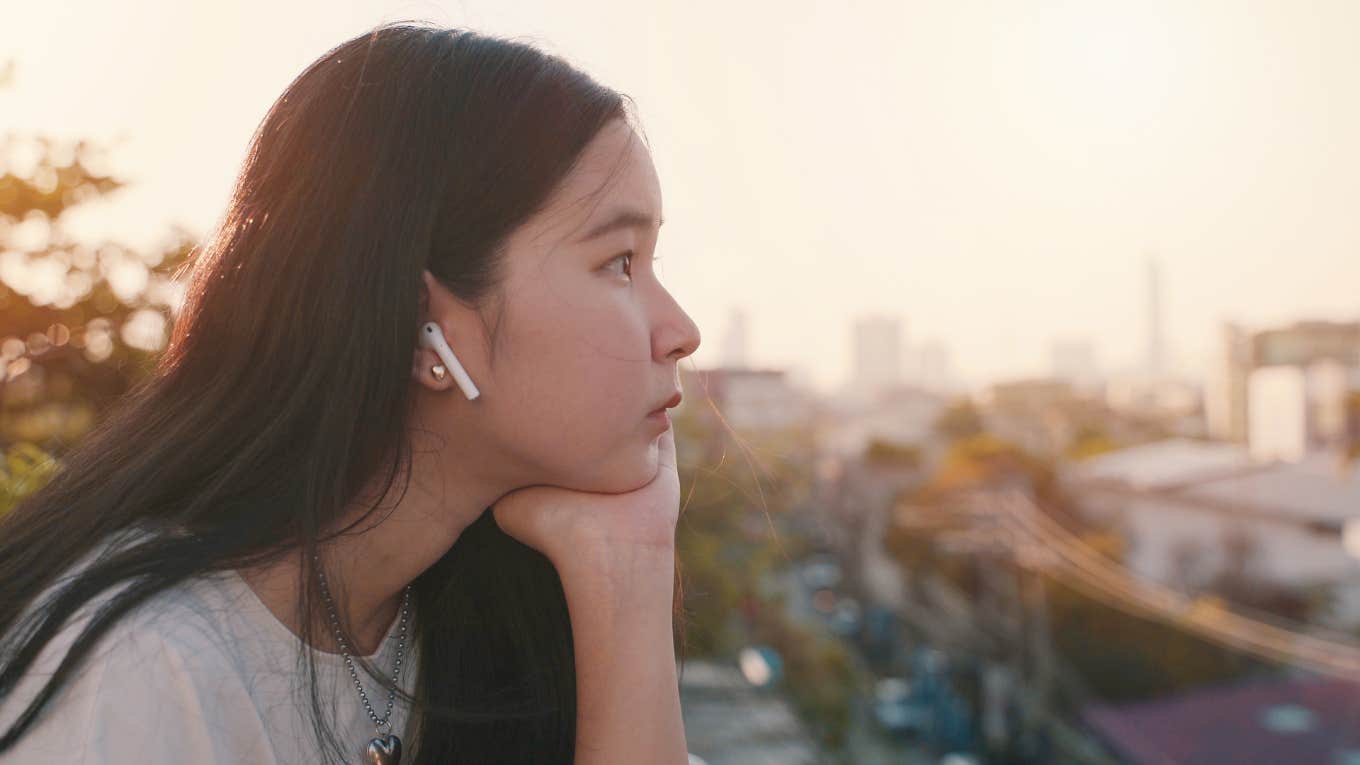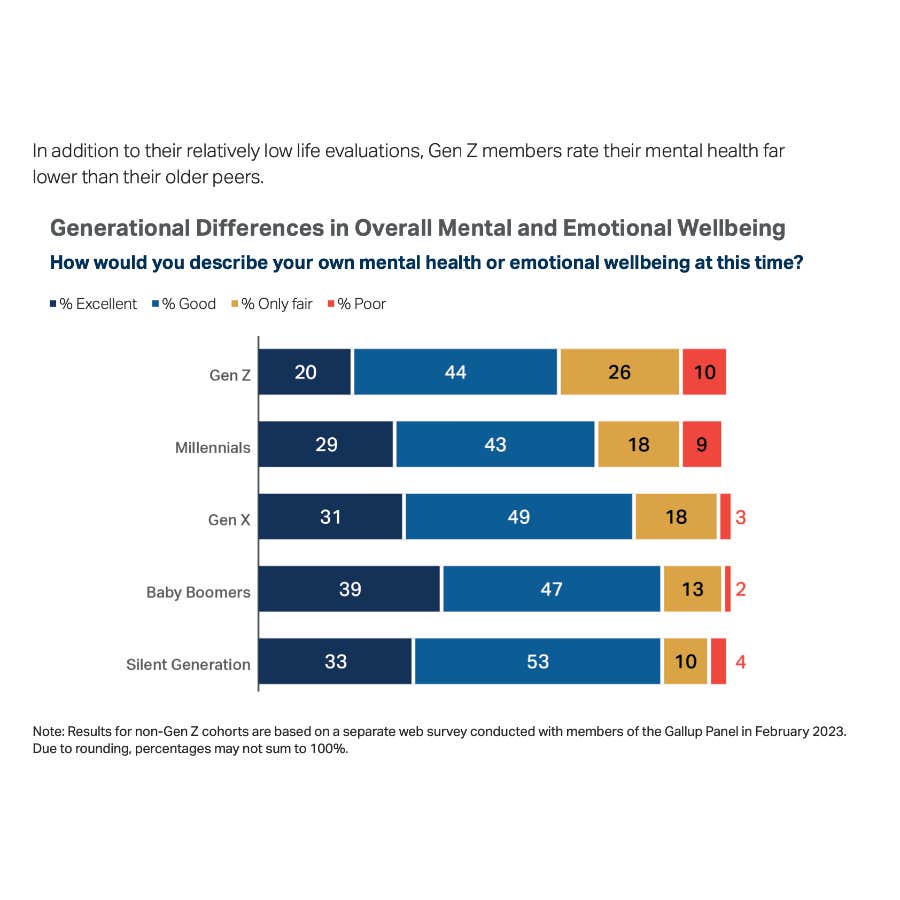New Study Finds Gen Z Is 'Not Thriving In Their Lives Compared To Other Generations'
This generational shift in mental health certainly poses many concerns.
 Nuchylee / Shutterstock via Canva
Nuchylee / Shutterstock via Canva People born between the years 1997 through 2012 — colloquially known as zoomers, post-millenials, or simply Generation Z — are undoubtedly facing much strife in an age where uncertainty has prevailed.
From climate change, gun control, rampant political turmoil, to an ongoing pandemic and more, Gen Z has not been the most fortunate group in terms of stability, and it seems to be taking a dark toll on their well-being.
A recent study found that Gen Z struggles more with mental health than previous generations.
According to a new study from Gallup and the Walton Family Foundation, 47% of Americans who qualify as Gen Z have been reported to struggle far more with their mental health in comparison to the previous generation of millennials.
 Photo: Gallup, Inc. / Walton Family Foundation
Photo: Gallup, Inc. / Walton Family Foundation
Given the events that have transpired within the past 20-something years, it’s not hard to guess why. Surveying more than 3,000 people between the ages 12 to 26, this study aimed to address Gen Z's rising levels of anxiety, stress, depression, and other mental health burdens.
Interestingly, the study also found that Gen Z’s mental health struggles are “distinct” compared to those from previous generations, with the exception of the Silent Generation, “the only generation on par with Gen Z… of whom 45% are considered thriving.”
Some suspect the overuse of phones and screen time might explain Gen Z’s decline in mental health.
While the turbulence of the past decade has wrought many challenges onto Gen Z, some believe that growing up in a hyperconnected world of social media and automation might be a significant contributing factor in the study's results.
Whether you’re on the subway to work, in a passing period at school, or sitting in the waiting room of a doctor’s office, you’re practically guaranteed to find people tapping away on a smartphone. In part due to the transformative release of the iPhone back in 2007, the world has unequivocally seen a rise in internet addiction.
 Photo: tommaso79 / Shutterstock
Photo: tommaso79 / Shutterstock
More than any other generation, Gen Z has had constant access to the internet, particularly with social media, which has been proven time and time again to foster feelings of social comparison, cyberbullying, and unrealistic standards of success and beauty.
The increase in Gen Z’s self-reported mental health struggles might be a positive sign.
This generational shift in mental health certainly poses many concerns regarding the well-being of the tweens, teens and the 20-somethings of this era. Even so, this shift might not be as bad as one might think, and psychologist Arthur Evans seems to think so, too.
“This generation may be more tuned in to recognizing issues with their mental health than older generations,” Evans said, and he’s not exactly off the mark.
One significant characteristic attributed to Gen Zers is their increased awareness and reduced stigma surrounding mental health. Fortunately, this generation has grown up in an era where mental health issues are discussed more openly and addressed more proactively.
This is a huge step in the right direction compared to previous generations ensconced in emotional repression and a “pick yourself up by the bootstraps” mentality to life and wellness. In comparison, this increased awareness can lead to more individuals seeking help and getting diagnosed.
Despite the abrupt shift in mental health, the report demonstrates Gen Z’s optimism for the future.
On a more promising note, the study also reveals self-reports of Gen Z envisioning a bright future for themselves.
According to pollsters, 82% of Gen Z members believe that they will achieve their goals, 76% have reported to see a bright future ahead of them, and 66% claim that they will get their dream job.
Given the data presented, it seems that members of Gen Z feel they have a lot to look forward to despite the odds, and why wouldn’t they? There is certainly a lot of work to be done in the world, and there's no denying that times and attitudes have changed, but perhaps Gen Z will be the spark that ignites hope, evokes change, and inspires future generations.
Xiomara Demarchi is a New York-based writer and frequent contributor to YourTango’s news and entertainment team. Keep up with them on Instagram.

